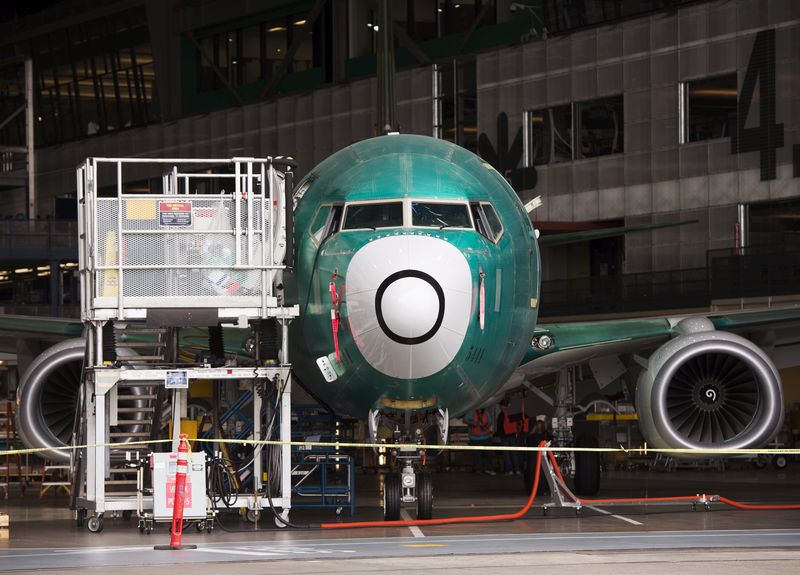By Alwyn Scott
RENTON, Washington (Reuters) - Boeing Co (N:BA) said on Tuesday that it has started building its first 737 MAX single-aisle jetliner on schedule, an important milestone for a new plane model that accounts for nearly half of the company's plane orders.
The first 737 MAX, a more fuel efficient version of Boeing's top-selling jet, is scheduled to be completed this year and begin flights tests in 2016. Customers will begin receiving the aircraft in the third quarter of 2017, Boeing said.
The first wing spars, large structural pieces that run perpendicular to the fuselage, were loaded into drilling and riveting machines on May 29, beginning the building process, said Keith Leverkuhn, vice president and general manager of the 737 MAX program.
Boeing is adding more automated machines as it begins assembly of the MAX, and as it prepares to increase production to 52 of its 737s a month in 2018, from 42 a month now.
Some of the newest machines, which began making wings for current generation 737s in March, automate about 90 percent of the wing assembly process, up from 70 percent on older, legacy machines that Boeing has used for decades, Boeing said.
Automation is crucial to reaching reach that rate, and possibly go higher, to 60 or more jets a month. Boeing's 737 wing factory is an obvious target. Most of the 100,000 rivet holes that are drilled and filled with fasteners per day, enough for two sets of wings, already are automated officials said.
Boeing is studying whether to automate other parts of wing production line. It does not expect automation to reduce the number of workers needed. Rather it enables higher production rates while improving quality, Boeing said.
"Increased automation doesn't mean less jobs," said Barry Lewis, manufacturing operations leader for wings during a tour of the factory near Seattle. "Increased automation means we can go higher in rates with a stable workforce."
Boeing has received 2,724 orders for the 737 MAX, which competes with Airbus' (PA:AIR) A320neo. Boeing has 5,667 unfilled orders for commercial aircraft.
The 737 MAX promises to be 20 percent more fuel efficient than the current 737, and to have operating costs that are eight percent lower than its nearest competitor, Boeing says.

Boeing shares rose 2.1 percent to $144.28 on the New York Stock Exchange.